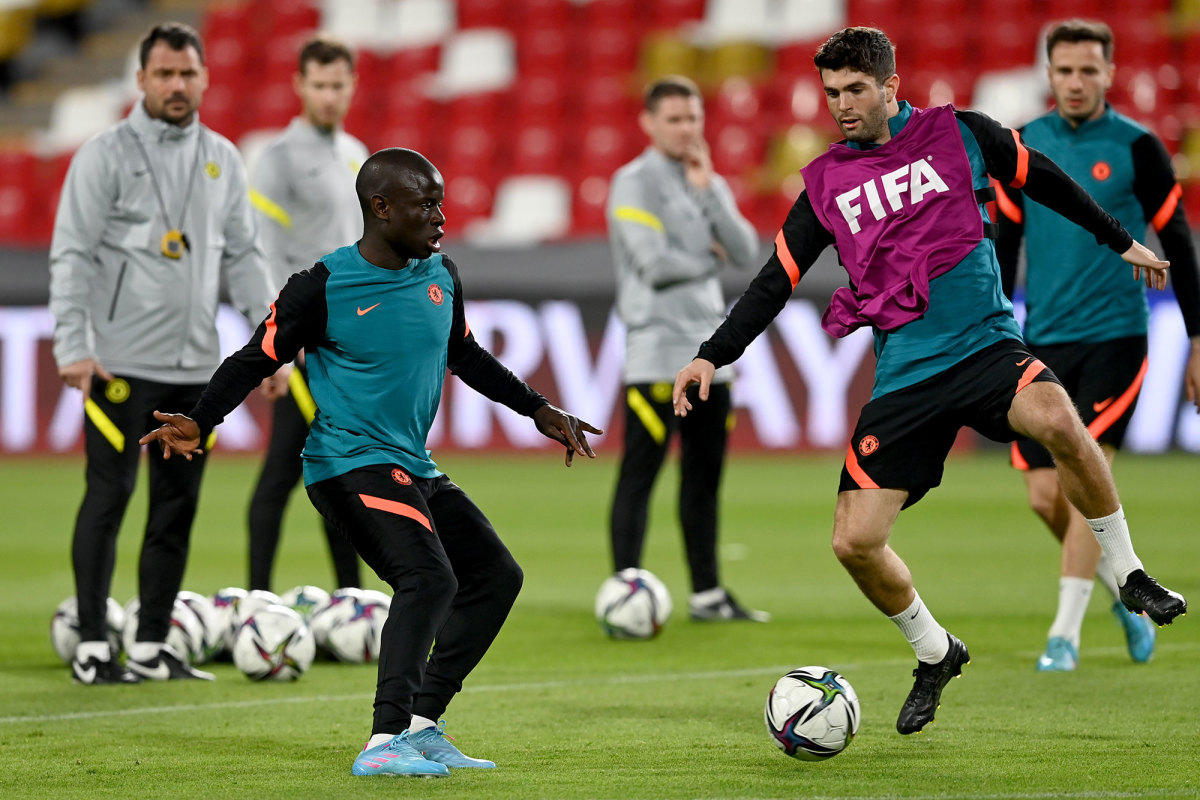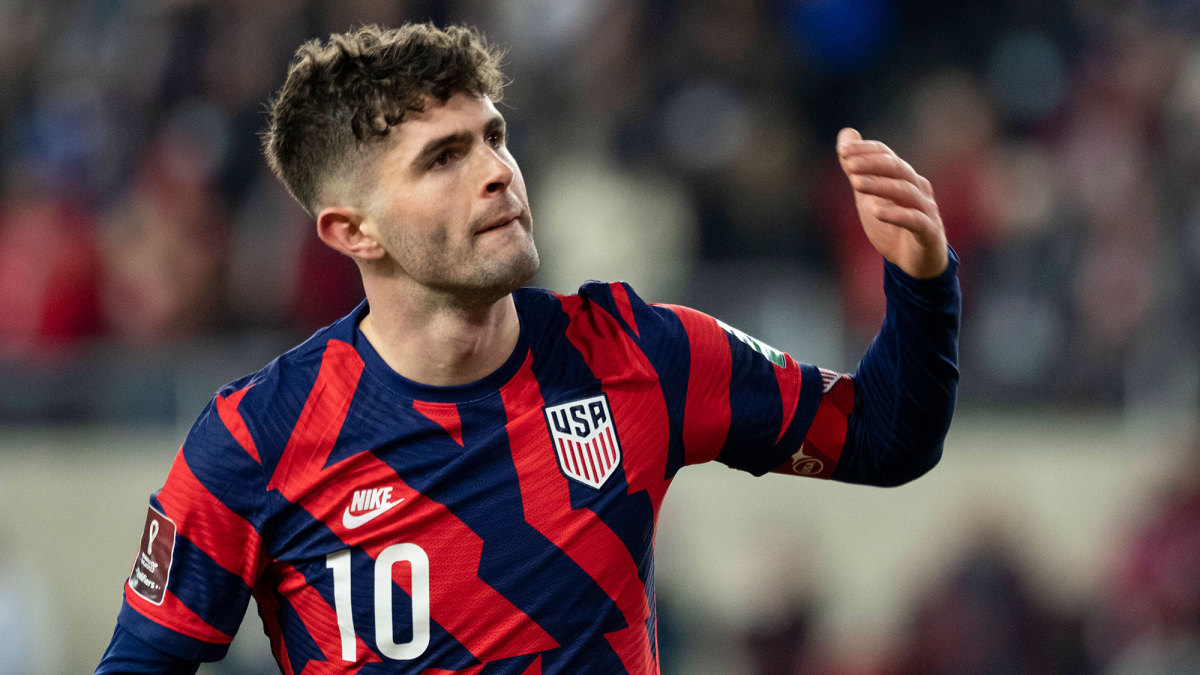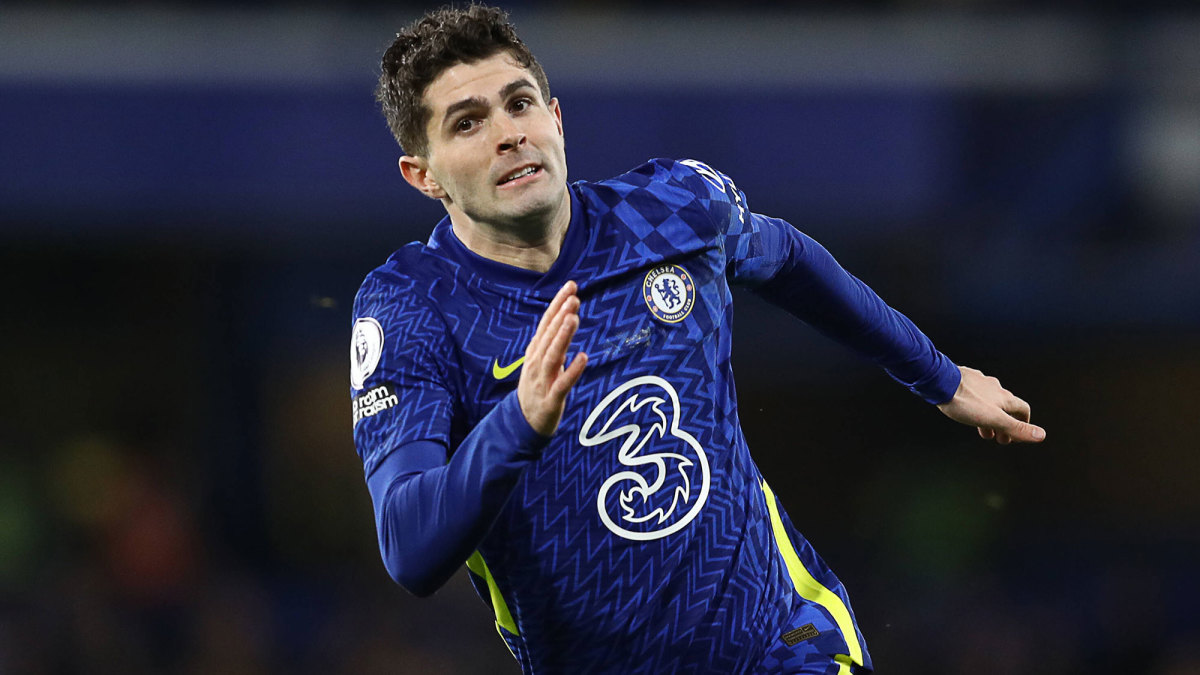Amid Some Struggles, Christian Pulisic Has Another Shot at History

Ultimately and through no fault of his own, Jovan Kirovski was a false alarm, a harbinger of nothing.
He signed with Manchester United at 16 and in the early 1990s, back when there was no top-tier American league—back when it had been more than four decades since the U.S. men won a World Cup game—it felt like the young Californian was setting out to explore Mars. Old Trafford felt that far away. Although he was unable to break through to Alex Ferguson’s first team thanks in part to work permit issues, Kirovski performed well for the reserves and eventually made his way to Borussia Dortmund. There, he wound up making history.
In 1997, he earned a UEFA Champions League medal after appearing twice toward the start of BVB’s title run. A few months later, he played the final 10 minutes of the German club’s Intercontinental Cup triumph over Cruzeiro of Brazil.
An American man was a world champion. It’s an achievement that remains as rare today as it was in the mid-‘90s.
There was no ripple effect, either for Kirovski or his U.S. compatriots. He never became a Dortmund regular and left the team in 1998, heading first to the 2. Bundesliga and Fortuna Köln before moving on to Portugal, England and then MLS (he’s now the LA Galaxy’s technical director). Kirovski’s acquisition by United and the titles at Dortmund didn’t blaze a trail for Americans to the sport’s top clubs, either.
In 1998, six years after United dipped into the U.S. market, there were only four field players on Steve Sampson’s World Cup squad who were on the books at foreign clubs. And just two, VfL Wolfsburg teammates Claudio Reyna and Chad Deering, were developed domestically. Four years later, there were 10 European field players on Bruce Arena’s World Cup roster. But they played for mid-tier teams. Frankie Hejduk’s Bayer Leverkusen was the only 2001-02 Champions League club, and he didn’t play a minute in the competition.
Eight years elapsed between Dortmund’s 1997 titles and the next time a U.S. man advanced as far as the Champions League semis (DaMarcus Beasley).
“We didn’t have many Americans abroad at the time. So it was always, ‘The Americans don’t play soccer. They play football, baseball, or basketball.’ Now, there’s more and more Americans there,” Kirovski told The Guardian last year. “There was a huge gap from me to the next [American winning the Champions League]. … I think we had a pretty big gap and I think now it’ll happen, I would say, more regular than every, what, 25-26 years.”
The spotlight fell on Kirovski again last May as Christian Pulisic helped steer Chelsea to the Champions League final with a goal and assist in the two-leg defeat of Real Madrid. Pulisic then saw 24 minutes of action in the decider against Manchester City, thus becoming the first American man to play in and win European football’s showpiece match.

Pulisic won’t be a harbinger, either. He’s already part of a wave—one of the most recognizable and accomplished members of a class of young Americans finally emerging at the sort of clubs that contend for prestigious domestic and continental honors. Nearly 30 years after Kirovski left for England, the U.S. national team is stocked with men competing at the highest level. Now, as the stretch run of World Cup qualifying approaches, one has the chance to match Kirovski and play in, and win, a world championship.
Of course it has to be Pulisic, the confident, precocious and technically brilliant Pennsylvanian who signed with Dortmund at 16, won the DFB-Pokal and scored in the Champions League at 18 and then joined Chelsea at 20. He somehow was among the lone bright spots of the U.S.’s doomed 2018 World Cup qualifying campaign, and he captured his first national male player of the year award as a 19-year-old. Pulisic has a knack for breaking barriers and making history.
He’s also struggled for significant stretches of that journey, leaving his participation and potential impact on this week’s FIFA Club World Cup in the United Arab Emirates uncertain. Chelsea meets Asian champion Al Hilal of Saudi Arabia in Wednesday’s semifinal. Copa Libertadores winner Palmeiras awaits in Sunday’s decider in Abu Dhabi.
Nothing Pulisic has chased or achieved typically comes easy, and so it hasn’t. Earning minutes at a club like Chelsea, which boasts a stacked roster and almost unlimited resources, presents a day-to-day challenge. Injuries have lingered or waylaid him at inopportune times as well, including last fall. His singular devotion to the game comes with high, self-imposed expectations and standards. Meanwhile, the focus and hopes pinned on him while on national team duty are unprecedented for a U.S. player.
He’s appeared beleaguered at times, and during the recently-concluded qualifying window Pulisic spoke about the toll it can take.
“I would say there's two sides of me, especially when people ask you how you are sometimes,” he said. “There’s the soccer side and then there's the person side. So the person side is even more important for me, and I'm doing all right in that sense. But yeah, it's a lot sometimes.
“Always when I come to the national team it's, ‘How are things at Chelsea? What's this? What's that?’ And yeah, things are tough. It's tough,” he added. “It's definitely played a lot on me. And mentally it's been difficult at times. But I'm always very excited to come back with the national team and sort of step away and get to enjoy playing with these guys, and get to just enjoying football in general.”
There were multiple moments in the recently concluded qualifiers, however, when it didn’t seem like Pulisic was enjoying himself. Against El Salvador and Canada, he started on the left wing but failed to make much impact, either because he wasn’t connecting with teammates in the penalty area or because he was shunted frequently toward a thicket of defenders in the middle. He was most effective as a potential threat or decoy, and some felt that self-imposed pressure might be inspiring him to try to do too much.

“I don't know if ‘frustration' is the right word for Christian’s performance,” U.S. coach Gregg Berhalter said. “He's a guy that does everything he can for the team to be successful, and he's a guy that you can count on him giving the effort needed to help the team. And I think that's the most important thing for us, for his teammates and for himself. It's just understanding that every player has their role within the team, and it's a very balanced team and we don't need one guy to be the hero necessarily. And I think there's maybe some unwanted pressure that Christian’s putting on himself because he's a great teammate. He’s a great player, and he can be the perfect game-changer for us used in the right way.”
Berhalter addressed the issue against Honduras in the finale of the qualifying window, deploying Pulisic as a second-half substitute to challenge a tired team worn down by Jordan Morris and Tim Weah. Pulisic scored a few minutes after entering. Both of his Octagonal goals—the first came against Mexico—have come off the bench.
“It was a decision that was made to put him in the best possible position to make the impact that we know he can make. And that's why when he's in those positions on the field, he has the quality to make finishes like that,” Berhalter said following the 3-0 win in frigid St. Paul, Minn.
“It’s never easy when you're a high-profile player and you're not in the form of your life, and those things are very hard to always capture, especially when you're at a club like Chelsea,” the manager continued. “But he's a guy that means a heck of a lot to this team. He’s one of the top performers in the team over this stretch of time, and he's going to be a huge contributor to what we do moving forward, that's for sure.”
That’s the thing about Pulisic—he can be counted on to rise to the occasion. The qualifying window was emblematic of his ability to grind through adversity and find ways to contribute. It was that knack for mastering the moment that led to his third U.S. Soccer player of the year award, which was announced in December. His high points are stratospheric, whether it was his goal last April in Madrid, his vital contribution to June’s Concacaf Nations League defeat of Mexico or the game-winner in the subsequent qualifier against El Tri in Cincinnati.
His prospects for the Club World Cup, where Chelsea will look to become just the third different English team to claim the title in 61 years (Manchester United won it twice and Liverpool lifted the trophy in 2019), are symbolically unclear. He’ll have to demonstrate his fitness and find his way through.

“For him, it’s also quite an adaptation now to play in -16 and then go with us to Abu Dhabi and play in + 24 [Celsius],” Chelsea manager Thomas Tuchel said last week. “Christian will … travel with us to Abu Dhabi and then we need to see how he adapts to this kind of extreme change.
“I don't know [the effects]. I will have to ask the doctor,” added Tuchel, who will miss Wednesday’s game, at least, after testing positive for COVID-19. “It cannot be too healthy, I guess, having jet lag and some flights in between. I guess you can do nicer things to your body than this. We will have to speak to the doctor and take care of him.”
If Pulisic plays and wins, he’ll become just the third American man to be a world champion and the first to do it with no asterisks or fine print attached. Kirovski’s title came before clubs from Concacaf, Africa, Asia and Oceania were invited to compete. FIFA awarded those world titles retroactively. And Julian Green, the surprise 2014 World Cup squad member and goal scorer, was part of the Bayern Munich side that was crowned the previous year in Morocco. He didn’t appear in that Club World Cup, however, and had played only two minutes for Bayern’s senior team to that point.
Omar Gonzalez, José Torres and Herculez Gomez (all Pachuca) and Ventura Alvarado (Club América) represented the U.S. in past Club World Cups, and all but Gomez reached a semifinal. But none made it through.
And so Pulisic stands on the precipice of history once again. Nothing is guaranteed, as the barren period that followed Kirovski demonstrates. But for Pulisic, reaching new heights has become routine despite the difficulty. He could shock the world this week, and somehow it wouldn’t come as a surprise. His talent and diligence keep fueling him to these uncharted thresholds, and he’s now just two games from another American soccer milestone.
“I just love the fact that Christian is fighting,” Berhalter said last month. “He’ll do whatever it takes to be on the field, and I think that’s the mark of character. That’s the mark of someone who knows how valuable it is to play for a club like Chelsea. And it’s been fun watching him.”
More Soccer Coverage:
